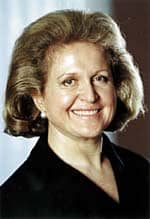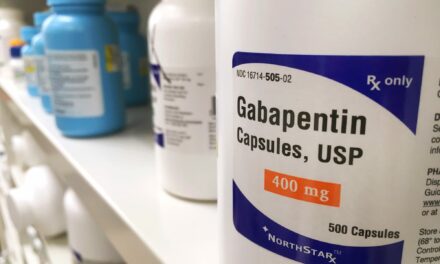Traveling with COPD

Thanks to advertising campaigns aimed at boosting tourism, prosperous times, which make vacationing financially possible for more people, and a change in the travel industry’s thinking about COPD patients, individuals with this disease have developed a keen interest in travel—and business has never been better for Tullis. “At one point this past summer, I had 11,000 oxygen patients traveling nationally and internationally, having the time of their lives,” Tullis says.
The travel industry is recognizing COPD patients as a still largely untapped pool of customers. To attract them, travel outfits are making their services on land, on sea, and in the air more accommodating of COPD patients. This creates a lucrative opportunity for home health care equipment providers.
The oxygen providers Tullis works with relish the fact that virtually all of Travelmed International’s customers pay for services in full, up front, and by means of credit card, he says. “The provider is guaranteed immediate payment as well as retrieval of equipment at the end of service because the equipment itself has been guaranteed by the patient’s credit card.”
In addition, approximately 65% of COPD travelers require wheelchairs. Travelmed International coordinates with HME outlets to supply wheelchairs, scooters, Hoyer lifts, transfer benches, and other items its COPD clients may need at all stages of their excursion.
HOW IT WORKS
Travelmed International arranges with companies from a vetted alliance of oxygen providers worldwide to ensure its COPD clients receive all the oxygen tanks and accessories they will need during the entire time they are away from home.
“If my clients arrive by plane, for example, and need continuous oxygen flow, I make sure the provider’s technician meets them at the gate and promptly hooks up a supply of oxygen sufficient to get my clients through customs, baggage claim, car rental, and the trip to the hotel or lodgings where they will be staying,” Tullis says. “Through this provider, I also arrange to have necessary supplies delivered to my clients’ hotel throughout their visit.”
A problem for some international COPD travelers is that a prescription for oxygen written in the United States is invalid in certain countries.
“That’s easily handled,” Tullis says. “We authenticate the prescriptions for our providers from wherever they originate so they will be valid overseas. This means COPD patients don’t have to be seen by a pulmonary doctor on arrival in, say, Paris before they can be hooked up to oxygen while on French soil.”
Travelmed International also ascertains in advance of a COPD patient’s trip whether the hotel at which the patient plans to stay will be accessible and—in some instances, particularly overseas—welcoming. “There are hotels in many parts of the world that are not designed to accommodate COPD patients, whether or not they are in a wheelchair,” Tullis says. “There are also hotels that make it clear they don’t want COPD patients because they think having people with oxygen tanks and nasal cannulas walking around the place will horrify other guests and be bad for business.”
In addition, Travelmed International maintains relationships with pulmonary-medicine physicians in the destination cities on the COPD patients’ travel itineraries. Thus, in the event a patient develops an infection or other physical ailment, a doctor can be dispatched to the traveler’s hotel room, usually within 30 minutes of the call for help.
WORD OF MOUTH SUCCESS
Many COPD patients—and also patients with emphysema, scleroderma, asbestosis, pulmonary fibrosis, black lung, and other breath-limiting conditions—find Travelmed International by surfing the Internet. Others learn of its existence through their personal physicians, travel agents, or cruise directors. Still others make the discovery from relatives and friends who themselves used the service and were satisfied by the experience. “We don’t do any advertising, apart from the various disability malls on the Internet,” Tullis says.
Basically, a COPD patient calls up the Travelmed International Web site (www. travelmedintl.com or www.travelo2.com) and completes an online service-request form. Travelmed International then contacts at least three oxygen providers near the patient’s stated destination, outlines the patient’s expected needs based on information from the online form, and asks for a detailed price quote. Travelmed International emails back to the patient a package price that includes the low-bidder’s quoted fee plus Travelmed International’s coordination fees. If the patient approves, he or she then submits credit card and oxygen prescription information for authentication by Travelmed International. Assuming everything checks out, the company sends an order—complete with delivery instructions, credit card charge authorization, and prescription—to the oxygen provider.
Tullis points out that travel for COPD patients is not cheap, but neither is it prohibitively expensive. For example, a woman traveling to New Jersey for a month-long family reunion this past summer was quoted a price of $550 (not including Tullis’ coordination fees) for oxygen and support services.
Although Travelmed International’s clients pay out of pocket, they rarely bear the expense alone. When they return home, clients customarily submit a claim to their insurance carrier for reimbursement (or to be applied to their deductible).
“As a company, we almost never deal with insurance companies, and under no circumstance do we accept Medicare assignment,” Tullis says. “The one insurance exception is for clients who are covered by international travel assistance policies from financial services companies, such as American Express Global Medical. We make the exception because these particular companies pay like clockwork.”
ULTIMATUM LED TO ENTERPRISE
Tullis—without any background in health care—began Travelmed International in 1992, a year after he fell and sustained a subdural hematoma. “I went home with the halo, the neck brace, the cervical collar, the lumbar collar, the Hoyer lift, the trapeze, the wheelchair, the hospital bed, everything,” he says. “But after a year of therapy, I wasn’t getting any better.”
Tullis’ lack of progress drove him to complain bitterly to the pair of rehab physicians managing his care. Patronizingly, they downplayed his protestations, Tullis says. He responded with an ultimatum. “‘Look,’ I said to them. ‘Either get me well or I’m going to start a house-call service and put you two out of business.’ The doctors said, ‘Sure, start a house-call company. You’re not a doctor, how are you going to do something like that?’ Well, I checked into it and found out you don’t have to be a doctor to operate a house-call company. You just have to contract out for a doctor.”
Tullis was on good terms with his primary care physician and solicited his thoughts regarding a house-call business. The doctor thought it promising and agreed to help.
The concept Tullis devised revolved around arranging for Las Vegas tourists—should they fall ill or become injured during their stay—to receive medical care in the comfort and privacy of their hotel rooms. Significantly, treatment would be billed to the patient’s credit card and not to insurance. Cash or traveler’s checks would also be accepted. In so doing, Travelmed would receive instant payment. The physician would be paid by Travelmed, less the company’s coordination fee, but at rates more lucrative than anything offered by even the most generous of third-party payors.
In 1993, Tullis’s house-call company opened for business. He added oxygen services 2 years later, and soon he was working with 28,000 physicians, nurses, and allied health practitioners in 1,500 cities scattered among 104 countries.
Thus far, Tullis has arranged services for nearly 400,000 patients. The numbers are growing rapidly as word of the service continues to spread.
PAID UP FRONT, IN FULL
In the early days of the enterprise, other providers scoffed when Tullis explained his fee structure and payment methodology. “A lot of them could not believe that patients would pay out of pocket the kind of fees we would be charging,” he says. “But there was something they didn’t understand about the psychology of vacationing. Most of the patients these providers would be seeing are people who have scrimped and saved all year—and often even longer than that—to pay for a great vacation, and they are not about to let illness or injury spoil their enjoyment. They are very willing to spend the money, cash on the barrel head, to have excellent health care services in order to get the maximum amount of fun out of their vacation.”
Convenience makes the price worth it to Tullis’ clients. “Our services are a lot less expensive in both time and money than waiting long hours in a hospital emergency department, clinic, or other type of health care facility, especially if you are in a strange city or in a foreign country,” he says. “That makes what I offer a tremendous value proposition. It’s part of the reason why so many more people with COPD are traveling now than ever before.”
Rich Smith is a contributing writer for RT Magazine.









